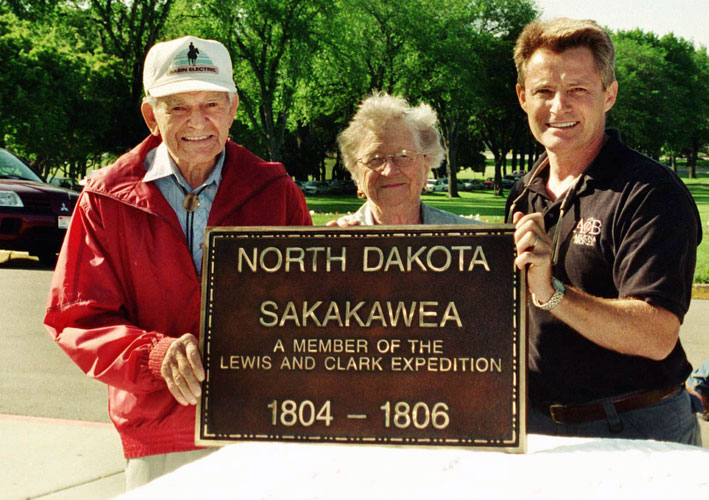The Grosventre Spelling of the Name, Bird Woman
By Rev. C. L. Hall
Sakakawea, the Bird Woman, was a captive among the Grosventres [Hidatsa] and had been taken to wife by a Frenchman named Charbonneau, who became an interpreter for Lewis and Clark when they were in their winter camp in 1804-5. She was a Shoshone by birth, but being young she had become like one of her captors. Her Grosventres captors gave her a name, which may have been a translation of her Shoshone name, but is more likely to have been entirely different. A stranger coming among the Grosventres tribe or any other tribe of Indians that I know, at once receives a name, such as may suit their fancy. The writer got the name of Ho-was-te which means, Good-Voice, because these were the first words of a Dakota hymn that he tried to sing. A friend named Orchard gets the name of Hacit from the Rees [Arikara], because they think that word sounds like the English name, and it has in Ree the meaning of Branch. So, for some reason, or fancy, the Shoshone girl was called The Bird Woman. There is no doubt about this name or the spelling of it. Washington Matthews, a collaborator of the Smithsonian Institution, published in 1873 a short account of the Grosventre people, together with a partial grammar and dictionary of the language [1]. This work is highly commended by the great linguist, Max Muller, who made use of it in writing his book on “The Origin and Growth of Religion.” The words for bird and woman are given in place in this dictionary. We thus get the name for The Bird Woman, Tsakaka-wiaš. The dotted s at the end stands for sh in English, and makes the compound word a proper name. It is equivalent to the definite article the. Anglicizing this a little to suit those using only the English alphabet and unfamiliar with the scientific use of the vowels, and leaving off the initial t sound which is hard for English tongues, we have the spelling in English, Sakakawea. During the last thirty years I have made numerous additions in manuscript to Matthews’ book, and also some corrections, but I have no occasion to correct the spelling of the words in question.




